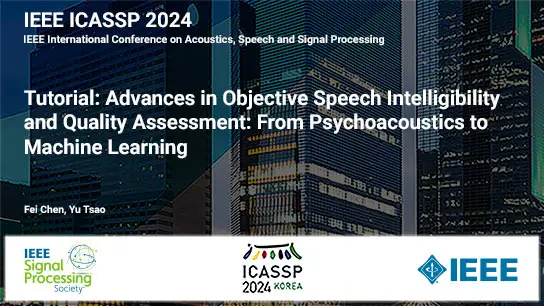A DATA-DRIVEN COGNITIVE SALIENCE MODEL FOR OBJECTIVE PERCEPTUAL AUDIO QUALITY ASSESSMENT
Pablo M. Delgado, Jürgen Herre
-
Members: FreeSPS
IEEE Members: $11.00
Non-members: $15.00Length: 00:14:43
Objective audio quality measurement systems often use per- ceptual models to predict the subjective quality scores of processed signals, as reported in listening tests. Most systems map different metrics of perceived degradation into a sin- gle quality score predicting subjective quality. This requires a quality mapping stage that is informed by real listening test data using statistical learning (i.e., a data-driven ap- proach) with distortion metrics as input features. However, the amount of reliable training data is limited in practice, and usually not sufficient for a comprehensive training of large learning models. Models of cognitive effects in objective systems can, however, improve the learning model. Specif- ically, considering the salience of certain distortion types, they provide additional features to the mapping stage that improve the learning process, especially for limited amounts of training data. We propose a novel data-driven salience model that informs the quality mapping stage by explicitly estimating the cognitive/degradation metric interactions using a salience measure. Systems incorporating the novel salience model are shown to outperform equivalent systems that only use statistical learning to combine cognitive and degradation metrics, as well as other well-known measurement systems, for a representative validation dataset.

